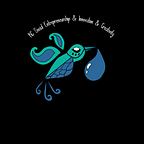SDG 3 Good Health and Wellbeing Challenge Workshop 1: Empathy/Discover/Research
Author: İpek (Grade 10)
Editor: Buse (Grade 11)
As the RC Social Entrepreneurship, Innovation and Creativity Office, we held the first workshop of SDG 3 Good Health and Wellbeing Challenge on January 22nd, 2022. Four student teams were formed after the Insight Day and they gathered together for the first time in this workshop to embark on their five-month journey of designing a project responding to the challenges experienced around SDG 3: Health and Wellbeing.
This Year in SDG Challenge Program Design: Peer Design, Facilitation and Peer Mentoring
This year, program sessions are designed by a team of students who participated in the SDG 13: Climate Action Challenge Program last year. They also facilitate the workshops and peer mentor this year’s student teams through follow-up meetings to support them in the implementation stage of each design thinking stage. During the workshop design sessions, we observe that last year’s experiences inform our design choices this year.
SDG 3 Challenge Program Starts
We started the workshop by answering the check-in question in which we were invited to share how we felt at the moment. This invitation to speak helped everyone in the circle to feel included. The facilitators wanted to hear everyone’s voice one by one to open space for everyone to own their space and get to know each other.
Then, participants of the challenge were invited to keep a journal to write down their observations, questions, insights, photos, doodles, lyrics, poems, stories, etc. in order to keep a record of their insights into the issues they will be developing projects on throughout their SDG journey.
The workshop continued by the teams filling a community contract. In breakout rooms, each team determined the values that would guide them along the process, discussed the possible challenges they may encounter, and tried to find possible solutions to those challenges. With the help of this contract, the teams had a chance to think about the five-month journey ahead of time and to prepare themselves for potential bumps in the road.
Wearable Technology Challenge
After a short break, teams received their first mini-challenge which was designing a wearable technology product. Each team chose a team member to design for and with. They interviewed this person to gain insight into their daily practices, needs, and wants. After prototyping the first design, they asked for feedback from that selected person to iterate their solution to the identified problem.
What is Design Thinking?
In this challenge, teams had a quick experience of all of the stages of design thinking: Empathize. Define/Reframe, Ideate, Prototype, Test, Iterate. Facilitators continued with a brief presentation of design thinking. This is a human-centered tool that can be used to come up with an innovative solution that addresses people’s needs. It is an iterative process that has five stages: empathize, define, ideate, prototype, test, iterate. Teams will go through these steps one by one in different workshops. In this workshop, they worked on empathizing. This step aims to work in the field to understand needs, paint points, and wants. It can be done by using various methods which include photojournalism, conducting interviews, practicing the 5-whys, making a collage, and doing secondary research.
With the purpose of filling out the empathy plan document, teams went to their breakout rooms again. Since empathy is one of the most important stages, they have time until the third workshop to finalize their empathy plans. After seeing that some of the teams were confused about which issue to focus on, Ms. Oğuz pointed out that not knowing what to work on was normal and that the empathy stage was for investigating new topics and noticing things that they haven’t realized before.
The first workshop of the SDG 3 Challenge ended after the teams filled out the exit ticket where they shared their takeaways from the workshop. We are all filled with hope and energy to co-create together in the following five months.
You can see below some of the insights on the first workshop from our participants.
- What aspect of this problem really breaks my heart?
- I haven’t heard of the IDEO Design Kit before and I found it useful to use in any kind of project that I’m working on.
- In this circle, all students work together as leaders.
- Design thinking seems to be a cumulative process.
- The purpose is very important in design thinking.
- I learned that there are tools to practice empathy.
What aspect of the current well-being and health-related issues breaks your heart the most?
